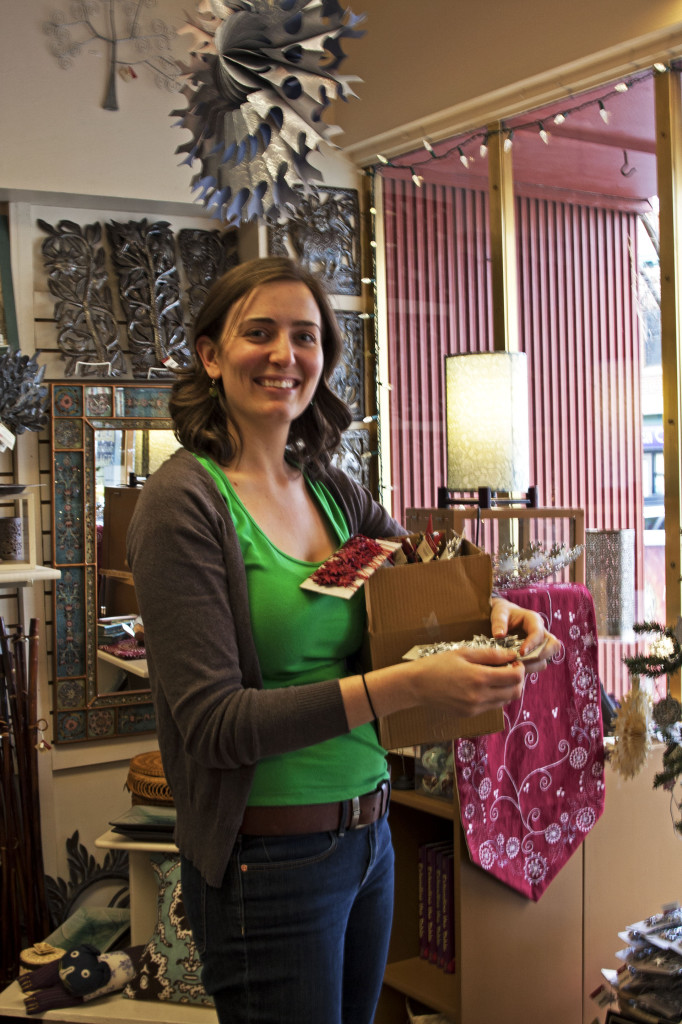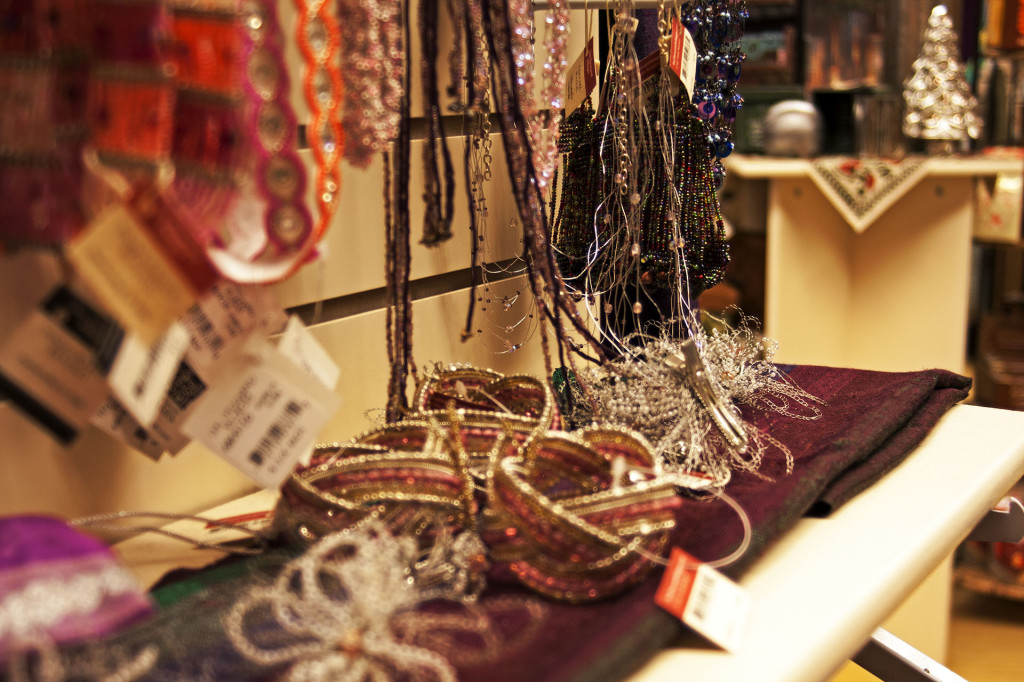We are the world: 10,000 Villages fills global niche
by Marnie Schleicher
Walking into Ten Thousand Villages for the first time can be overwhelming. Every time you visit, the experience is different, because the store is filled with products made by artisan groups from over 38 countries.
The store is cheery and welcoming with its red façade, silhouettes of houses lining the bottom of the windows and lettering in the front door that reads, “Fairly traded handicrafts from around the world.” It’s nestled between a Dollar Bank and Bodiography on Forbes Ave.
“The store is organized into color schemes,” Sue Schneider, one of the founders of the store, says. “It’s a lot easier on the customers.”
Sue has played many roles at Ten Thousand Villages, having served as president of the board of directors, and now she is a staff volunteer at the store, working on special projects from time to time.
The store is celebrating its 15th anniversary this October, and Sue remembers the enormous amount of work that went in to selecting the location.
“We looked at a number of areas in Pittsburgh,” Sue says. “The demographics are right here in Squirrel Hill.”
Ten Thousand Villages has 50 to 60 volunteers who share the stories of artisans and educate customers about fair trade. There are hand-woven Bangladeshi baskets lining the floor that contain things like alpaca blankets made in Bolivia and coasters from Kenya. Cloth napkins made in India sit on trays from Indonesia. These baskets, among other large items, sit at the base of other displays and tables, which are filled with other items from all over the world.
Baskets hang on the walls around the store, along with wind chimes and quotes from around the world, like this one from Indian poet Rabindranth Tagore: “I slept and dreamed that life was happiness. I awoke and saw that life was service. I served and found in service happiness is found.”
The neighborhood boasts a mixed population of well-traveled, well-educated people with a varying range of ages and philosophies, which is well suited for a store as eclectic as Ten Thousand Villages. The store has something for just about anyone.
One of the things Sue loves about the store is its respect for the indigenous, artistic traditions of the artisans. She helps them come up with ideas for products that will sell in the North American market.
Ten Thousand Villages is one of the founding members of the World Fair Trade Organization, and takes pride in the global fair trade network it has helped to create over the years.
Fair trade is an international movement that seeks greater equity in international trade. Artisans are paid a fair wage for their products. The store pays each artisan group 50 percent up front, allowing groups to buy materials, and 50 percent when their products ship.
“The baskets from Bangladesh are some of my favorites,” Sue says. “Basket making made it possible for women to go to school. Many of them have the names of the women who made it on there.”
The store not only is an active participant in the fair trade organization, but it is involved in the neighborhood as well. In the past, Ten Thousand Villages has hosted summer programs for children, held in-store events to educate people about fair trade and offered off-site sales in the community, allowing the local groups to keep 15 percent of the sales.
Ten Thousand Villages staff manager Jennifer Legler started as a volunteer while in college seven years ago. She has given presentations at local colleges and organizations, and values the interactions between the store and the community, and is always open to teaming up with other stores.
One of the ongoing programs that the store participates in is a school kit program, which works with local area schools to collect school supplies that are sent to the Mennonite Central Committee, which distributes them to countries in need.
Once a month the staff holds an in-store event that serves a dual purpose in educating the community and promoting the store itself, varying from talks to samplings of coffee harvested by the artisans.
Sue picks up a singing bowl used for meditation, holds it in one hand and explains how it is played by tapping the rim and running the smooth end of the stick around the outer edge of the bowl. It begins to resonate with a haunting, low whirr and Sue grins, her eyes closed as she continues to play.
Ten Thousand Villages is always looking for new volunteers and ways to spread the word about fair trade. The store gives out gift tags with purchases that have a QR code on them, linking to a YouTube channel where people can see artisans making their products.
Jenn smiles as she picks up a gift tag, which reads “See your product’s journey” and she says, “It’s amazing to be able to see the artisans and the journey that their goods take to be made and ultimately end up here at our store.”


 Next Post
Next Post